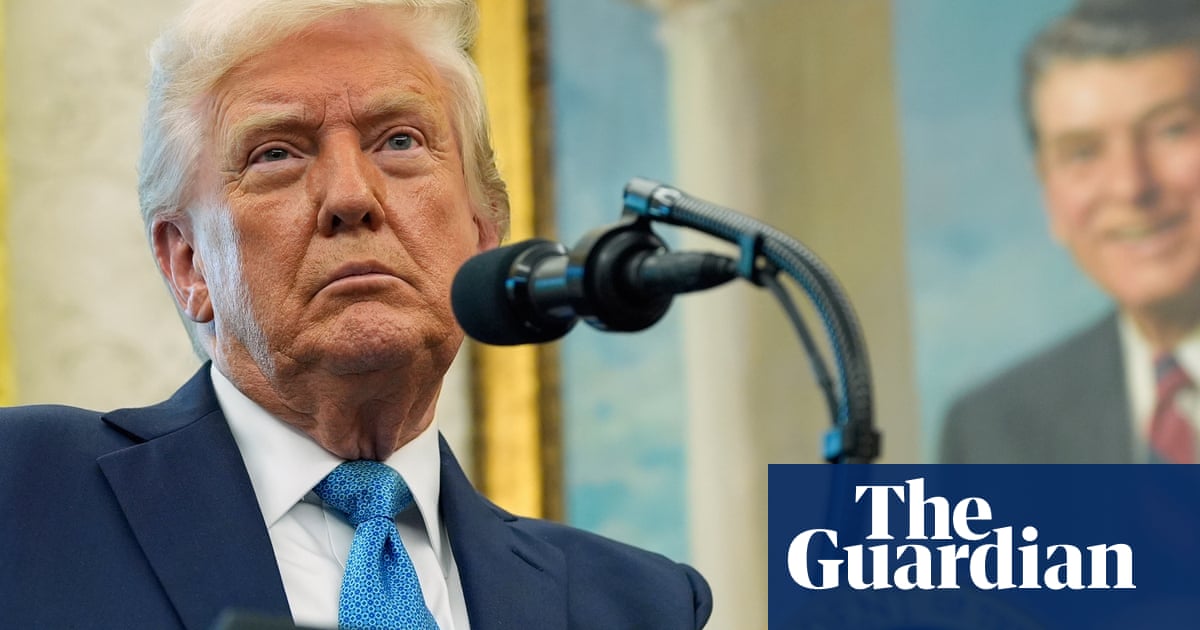Donald Trump has said tariffs on goods from China will be reduced “substantially” but “won’t be zero”, after US treasury secretary Scott Bessent said he expects a “de-escalation” in the trade war between the world’s two largest economies.
Trump placed import taxes of 145% onChina, which countered with 125% tariffs on US goods, causing volatility in the stock market and concern about slowing global economic growth.
But the US president on Tuesday said he would be “very nice” toChinaand not play hardball with Chinese President Xi Jinping. “We’re going to live together very happily and ideally work together,” Trump said.
Meanwhile, Tesla chief executiveElon Musksaid he would start pulling back from his role at the “department of government efficiency” (Doge) from May, as the company reported a massive dip in profits amid backlash against his White House role.
Here are the key stories at a glance:
The treasury secretary, Scott Bessent, has said that he expects a “de-escalation” in the trade war between the US and China and that the high tariffs are unsustainable.
“I do say China is going to be a slog in terms of the negotiations,” Bessent said, according to a transcript obtained by the Associated Press. “Neither side thinks the status quo is sustainable.”
In response, Donald Trump said during a White House news conference that high tariffs on goods from China will “come down substantially”.
Read the full story
Donald Trump’s tariffs have unleashed a “major negative shock” into the world economy, the International Monetary Fund has said, as it cut its forecasts for US, UK and global growth. The Washington-based lender cut its forecast for global GDP growth to 2.8% for this year – 0.5% weaker than it was expecting as recently as January.
Read the full story
On a Tesla investor call, Elon Musk said the work necessary to get the government’s “financial house in order is mostly done”. His comments came after the company reported a massive dip in both profits and revenues in the first quarter of 2025.
“Starting probably next month, May, my time allocation to Doge will drop significantly,” he said.
Read the full story
Congressional lawmakers denounced the treatment of Mahmoud Khalil and Rümeysa Öztürk, the students being detained byUS immigrationauthorities for their pro-Palestinian activism, as a “national disgrace” during a visit to the two facilities in Louisiana where each are being held.
Read the full story
The US health secretary,Robert F Kennedy Jr, on has called sugar “poison” and recommended that Americans eat “zero” addedsugarin their food.
He acknowledged that the federal government was unlikely to be able to eliminate it from products, but said better labeling was needed for foods and that new government guidelines on nutrition would recommend people avoid sugar completely.
Read the full story
Donald Trump has said he has no plans to fire theFederal Reservechair, Jerome Powell, and suggested the draconian tariffs the US has imposed on China could be lowered.
The president’s comments come days after he called the central bank boss a “major loser” whose “termination cannot come fast enough” and defended his tariffs after they triggered stock market sell-offs.
Read the full story
The secretary of state,Marco Rubio, has announced a proposed reorganisation of the US state department as part of what he called an effort to reform it amid criticism from the Trump White House over the execution of US diplomacy.
Read the full story
The embattled US defense secretary,Pete Hegseth, has defended his most recent use of the encrypted messaging appSignalto discuss sensitive military operations, blaming fired Pentagon officials for orchestrating leaks against theTrump administration.
Read the full story
More than 150 presidents of US colleges and universities have signed a statement denouncing the Trump administration’s “unprecedented government overreach and political interference” with higher education – the strongest sign yet that US educational institutions are forming a unified front against the government’s extraordinary attack on their independence.
Read the full story
Former vice-president Al Gore said the Trump administrationwas “trying to create their own preferred version of reality”,akin to the Nazi party in 1930s Germany.
Larry David wrote a spoof essay in responseto Bill Maher’s recent glowingaccount of his dinner with Trump in the White House.
JD Vance has said the 21st century could be a “dark time for humanity”without aclose India-US alliance.
Catching up?Here’s what happened on21 April 2025.
